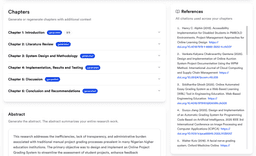The Truth About Ghost Jobs: Why Companies Post Fake Listings
Companies post fake job listings to appear like they’re growing, build a candidate pool, boost branding, or pressure employees. Nearly 1 in 5 job postings are never meant to be filled. Here's how to spot and avoid them.


If you've been applying for jobs but getting no responses, the problem might not be your qualifications—it could be the job listing itself.
Many companies post job openings without any intention of hiring, creating what are known as ghost jobs.
These postings clog job boards, waste applicants’ time, and make the job search process more frustrating than it already is.
Studies suggest that nearly one in five job listings fall into this category, and in some industries, like construction and the arts, it can be as high as one in three.
But why would companies advertise positions they don’t plan to fill? Let’s break it down.
Why Do Companies Post Jobs They Don’t Intend to Fill?
Companies list ghost jobs for several reasons, but according to a report by Grey, the most common ones include:
1. Creating the Illusion of Growth
Companies like to appear as if they’re expanding, even when they’re not.
Keeping job listings up makes them look like they’re actively growing and hiring, which can attract investors and boost their reputation.
2. Building a Pool of Potential Candidates
Some companies collect résumés for future hiring needs, even if they don’t currently have any open positions.
This allows them to have a list of qualified applicants ready to go whenever they do need to hire.
3. Strengthening Employer Branding
Posting jobs frequently can make a company look appealing to both jobseekers and the public.
It gives the impression that they are a desirable place to work, even if no actual hiring is happening.
4. Keeping Employees on Their Toes
Some companies use job postings as a tactic to pressure their current employees.
By constantly advertising new positions, they create an atmosphere where employees feel replaceable, which can discourage them from negotiating for better pay or benefits.
A survey in 2024 revealed that nearly 40% of hiring managers admitted to posting fake job listings, with some companies putting up dozens of ghost jobs at a time.
This means thousands of jobseekers are applying for roles that don’t actually exist.
How to Identify and Avoid Fake Job Listings
To avoid wasting time on job postings that aren’t real, look out for these warning signs:
- ✅ Check the company’s hiring history: Look at their LinkedIn or website. Are they actually bringing in new employees, or do they just keep posting the same jobs?
- ✅ Pay attention to job longevity: If a job listing has been up for months without updates, it might not be an active opening.
- ✅ Look for clear job details: A legitimate job post will usually include a specific job description, salary range, and required qualifications. If the listing is vague, it could be a placeholder.
- ✅ Try reaching out directly: If you can, contact someone at the company to confirm whether the position is actively being filled.
- ✅ Avoid jobs that require payment: No real employer will ask you to pay for applications, background checks, or training upfront.
- ✅ Check online reviews and forums: Websites like Glassdoor or LinkedIn discussions can give insight into a company’s hiring practices and whether they actually follow through with job postings.
Can We Completely Avoid Ghost Jobs?
No, because some ghost jobs are carefully crafted to look real. However, using the right strategies can reduce stress and save time, allowing you to focus on productive job searches.
By identifying red flags early, you can apply for real opportunities and avoid the pain of waiting for responses that will never come.
Final Thoughts
Ghost jobs add unnecessary frustration to an already difficult job market. Understanding why companies post fake listings and learning how to recognize them can save you from wasting time and energy.
While job hunting, focus on listings that show clear signs of being legitimate, active opportunities—and don’t take rejection personally if you don’t hear back.
Sometimes, it’s not about you—it’s about the system.
FAQs
- What is a ghost job? A ghost job is a job posting that a company lists online but has no intention of filling.
- Why do companies post fake jobs? The main reasons include branding, talent pipeline building, and creating a false sense of growth.
- How can I avoid wasting time on ghost jobs? Use hiring trends, job verification, networking, and direct outreach to filter out fake listings.
- Are ghost jobs illegal? While misleading, posting ghost jobs isn’t illegal in most places—but it is unethical.
- Do big companies post ghost jobs too? Yes, even well-known companies do this, though it’s more common in smaller firms or industries like construction and the arts.
💡 Credits & Sources: Some insights in this article were adapted from reports by Grey, Greenhouse, and Resume Builder.


